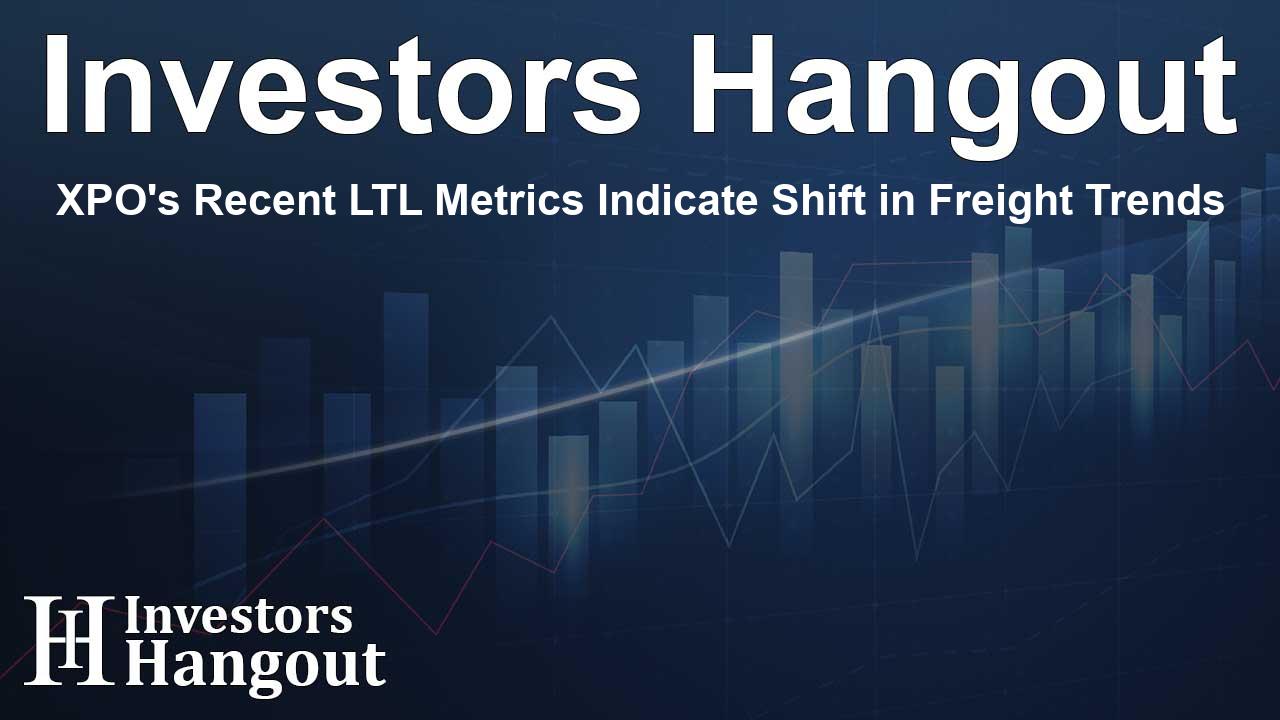XPO's Recent LTL Metrics Indicate Shift in Freight Trends

Insights on XPO's LTL Performance Metrics
XPO, Inc., a prominent figure in freight transportation across North America, has recently disclosed some significant preliminary operational data regarding its less-than-truckload (LTL) segment. This data sheds light on trends that are essential for industry participants and stakeholders alike.
Understanding LTL Segment Trends
The latest figures indicate a decrease in LTL tonnage per day by 4.7% compared to the previous year. This can be attributed to various factors, including a 3.4% reduction in shipments per day and a slight decrease of 1.3% in the weight per shipment. Such metrics are vital for understanding the shifting dynamics within the freight industry.
XPO's Commitment to Efficient Operations
XPO stands out for its commitment to efficiency, managing the transportation of approximately 17 billion pounds of freight annually. With a robust customer-focused approach, the company serves around 55,000 customers through its extensive network of 608 locations and a workforce of 38,000 employees across North America and Europe. This infrastructure supports XPO’s mission to deliver reliable services tailored to customer needs.
Impacts of Market Conditions on Operations
Several external factors impact the LTL market, including economic fluctuations, supply chain dynamics, and labor market conditions. XPO is continuously adapting to these challenges, leveraging proprietary technology and management strategies aimed at maintaining productivity and service excellence.
Future Prospects for XPO
Despite the current downturn in tonnage and shipment figures, XPO remains optimistic about future growth. As market conditions evolve, the company’s strategic investments and innovative technologies will play pivotal roles in navigating challenges and seizing new opportunities. Stakeholders can look forward to how XPO will adapt and potentially recover from the current variability in its LTL operations.
Frequently Asked Questions
What are the recent trends in XPO's LTL segment?
Recent data shows a 4.7% decrease in LTL tonnage per day compared to the previous year, alongside a decrease in both shipments per day and weight per shipment.
How does XPO ensure efficient freight management?
XPO relies on advanced technology and a customer-focused approach to enhance its operational efficiency and service quality.
What factors are affecting the freight transportation market?
Economic changes, supply chain issues, labor market dynamics, and regulatory shifts are notable factors impacting the freight industry.
How can stakeholders react to the changes in freight metrics?
Stakeholders should closely monitor market trends and XPO's operational adjustments to better inform their strategies regarding service utilization and investments.
What does XPO's future look like amid current market conditions?
While there are challenges ahead, XPO is committed to innovation and efficiency improvement, suggesting potential for recovery and growth in the coming periods.
About The Author
Contact Dominic Sanders privately here. Or send an email with ATTN: Dominic Sanders as the subject to contact@investorshangout.com.
About Investors Hangout
Investors Hangout is a leading online stock forum for financial discussion and learning, offering a wide range of free tools and resources. It draws in traders of all levels, who exchange market knowledge, investigate trading tactics, and keep an eye on industry developments in real time. Featuring financial articles, stock message boards, quotes, charts, company profiles, and live news updates. Through cooperative learning and a wealth of informational resources, it helps users from novices creating their first portfolios to experts honing their techniques. Join Investors Hangout today: https://investorshangout.com/
The content of this article is based on factual, publicly available information and does not represent legal, financial, or investment advice. Investors Hangout does not offer financial advice, and the author is not a licensed financial advisor. Consult a qualified advisor before making any financial or investment decisions based on this article. This article should not be considered advice to purchase, sell, or hold any securities or other investments. If any of the material provided here is inaccurate, please contact us for corrections.
